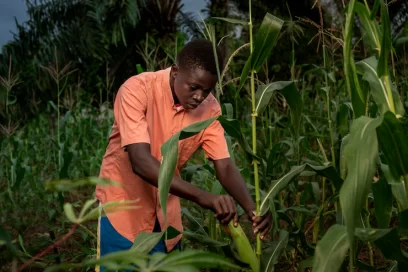Maximizing crop yields is essential for smallholder farmers to enhance productivity, improve food security, and increase income. In this blog post, we’ll explore innovative farming techniques that smallholder farmers can adopt to maximize crop yields and optimize agricultural productivity. From sustainable practices to modern technologies, these techniques offer promising solutions to address the challenges of limited resources, climate change, and market volatility.
Understanding Agricultural Yields and Productivity
Agricultural yield refers to the quantity of crops harvested per unit of land area or per unit of input (e.g., seeds, fertilizer, water). Maximizing crop yields involves optimizing productivity and efficiency throughout the farming process, from land preparation to post-harvest management. Here are key factors that influence agricultural yields and productivity:
- Soil Health: Healthy soils with optimal fertility, structure, and microbial activity provide a favorable environment for plant growth and nutrient uptake, leading to higher crop yields.
- Water Management: Efficient water management practices, such as irrigation, rainwater harvesting, and water-saving technologies, ensure adequate moisture for crops, especially during periods of drought or water scarcity.
- Crop Selection and Rotation: Choosing suitable crop varieties and practicing crop rotation or intercropping can improve soil fertility, pest and disease management, and overall yield stability.
- Nutrient Management: Balancing soil nutrients through organic and mineral fertilizers, composting, and nutrient recycling enhances plant nutrition and promotes robust growth and yield.
- Pest and Disease Control: Implementing integrated pest management (IPM) strategies, biocontrol methods, and crop protection measures minimizes yield losses caused by pests, diseases, and weeds.
- Climate-Smart Agriculture: Adopting climate-smart agricultural practices such as conservation agriculture, agroforestry, and greenhouse farming helps farmers adapt to climate change, mitigate risks, and sustainably increase yields.
- Mechanization and Technology: Using modern farm machinery, precision agriculture tools, and digital technologies streamlines farm operations, reduces labor costs, and improves productivity and efficiency.

Innovative Farming Techniques to Maximize Crop Yields
- Precision Agriculture: Utilize precision agriculture technologies such as GPS-guided tractors, drones, and sensors to optimize planting, irrigation, fertilization, and pest control practices, resulting in higher yields and resource efficiency.
- Vertical Farming: Explore vertical farming methods such as hydroponics, aquaponics, and aeroponics to grow crops in vertically stacked layers or controlled environments, maximizing space utilization, water efficiency, and crop productivity.
- Conservation Agriculture: Embrace conservation agriculture principles such as minimal soil disturbance, permanent soil cover, and crop diversification to improve soil health, water retention, and ecosystem resilience, leading to sustainable increases in crop yields.
- Integrated Crop-Livestock Systems: Integrate crop and livestock production systems to enhance nutrient cycling, soil fertility, and farm productivity, leveraging synergies between crops and livestock for mutual benefits.
- Agroecology and Biodiversity: Practice agroecological farming approaches that promote biodiversity, ecosystem services, and natural pest control mechanisms, reducing reliance on synthetic inputs and enhancing crop resilience and productivity.
Conclusion:
Maximizing crop yields requires a holistic approach that integrates sustainable farming practices, innovative technologies, and adaptive strategies to optimize agricultural productivity and ensure food security for smallholder farmers. By embracing innovative farming techniques and adopting climate-smart agricultural practices, smallholder farmers can enhance crop yields, improve livelihoods, and build resilient and sustainable food systems for the future.




